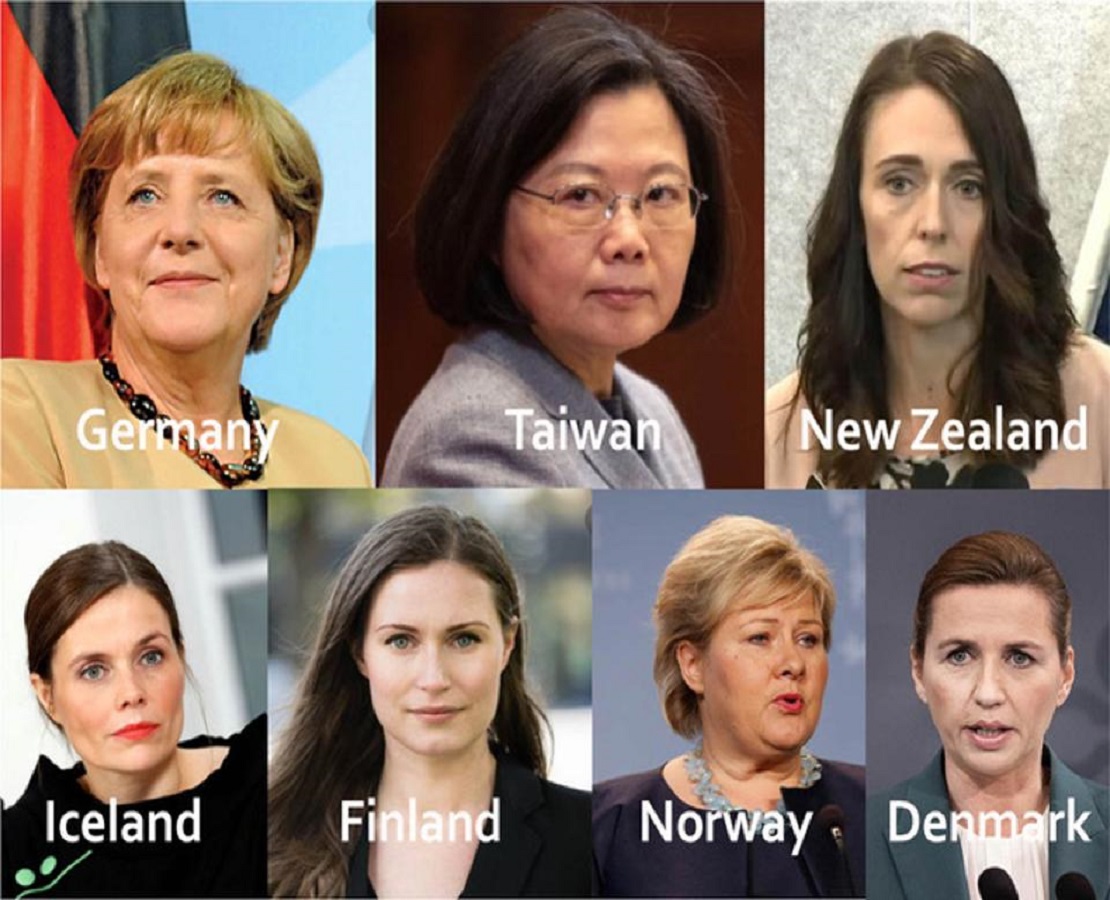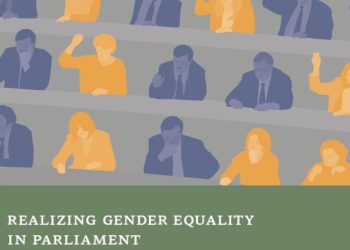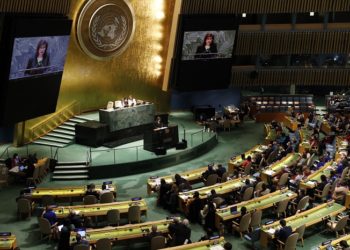Leading international media outlets have been consistently covering countries that have had successes and achievements in their response to the coronavirus crisis. What all of these countries have in common is having female leaders.
“It was actually female leaders who started acting much earlier and decisively.”
“The secret weapon in the fight against coronavirus: women,” this was the headline of one of the articles of the British The Guardian.
“Being a woman doesn’t make you better at handling a global pandemic – but women generally have to be better in order to become leaders,” wrote the author referring to New Zealand, Taiwan, and Germany as examples.
The leaders of these three countries are women and they’ve been doing an exceptional job handling the coronavirus crisis.
Tsai Ing-Wen, a former law professor, became the first female president of Taiwan in 2016 and was re-elected in January of 2020. She has put up a quick and successful defence against the virus and despite its proximity to mainland China, it has had only 400 confirmed cases. It’s worth noting that the article was published on April 11 and two weeks after that, on April 25, the number of confirmed cases was 429, and there were 6 deaths. Taiwan has a population of about 23.8 million.
This country is so well prepared that is has been donating 10 million masks to the US and 11 European countries.
Jacinda Ardern, the Prime Minister of New Zealand, is one of the most talked about officials these days. Leading media outlets keep reporting about her initiatives. According to one source, New Zealand is one of the leading nations in the fight against Covid-19. By April 11, 2020, the country only had one Covid-19 death. That’s partly due to geography and size: with under 5 million people, New Zealand’s entire population is much smaller than New York’s. Being an island state also gives it a distinct advantage. However, leadership is also a factor. New Zealand has implemented widespread testing and Ardern has responded to the crisis with clarity and compassion.
Germany has been hit hard by coronavirus, but it has an exceptionally low mortality rate of around 1.6%. Italy’s fatality rate is 12%; Spain, France and Britain’s is 10%; China’s is 4%; America’s is 3%. Low death rates have to do with aggressive testing and a large number of intensive care beds. Again, however, the country’s leadership plays a role. The Guardian has quoted a joke someone posted on Twitter: if you’re asking why death rates are so low in Germany and so high in America, it’s because their chancellor used to be a quantum chemist and the US President used to be a reality television host. Merkel indeed has a doctorate in quantum chemistry.
Officials take 20 percent pay cuts
In another article The Guardian had written about how the prime minister of New Zealand and other officials had taken a 20% pay cut lasting six months in a display of social solidarity with those affected by the coronavirus as well as the frontline workers.
“If there was ever a time to close the gap between groups of people across New Zealand in different positions, it is now,” Jacinda Ardern had said.
Women are stepping up to show the world how to manage a messy patch for our human family
Forbes writes that, “Looking for examples of true leadership in a crisis? From Iceland to Taiwan and from Germany to New Zealand, women are stepping up to show the world how to manage a messy patch for our human family. Add in Finland, Iceland and Denmark, and this pandemic is revealing that women have what it takes when the heat rises in our Houses of State. Many will say these are small countries, or islands, or other exceptions. But Germany is large and leading, and the U.K. is an island with very different outcomes. These leaders are gifting us an attractive alternative way of wielding power. What are they teaching us?”
CNN continues, “Four of the five Nordic countries (Sweden, Norway, Finland, Denmark, and Iceland) are led by women. Their countries each have lower death rates from coronavirus compared to the rest of Europe. For example, Finland’s Prime Minister, 34-year-old Sanna Marin, is the world’s youngest leader but she has an 85% approval rating. Denmark and Iceland also have female prime ministers and have been making noteworthy efforts in the fight against coronavirus.
The success of these and other women-led governments in dealing with a global pandemic is all the more noteworthy, given that women make up less than 7% of world leaders. CNN notes that it’s too early to make any predictions but at the moment it is clear that the leaders who acted early and decisively were women. “We have created a world where women are squeezed into just 25% — one quarter — of the space, both in physical decision-making rooms, and in the stories that we tell about our lives. One quarter is not enough,” said UN Women Executive Director Phumzile Mlambo-Ngcuka while adding that it was long past time for us to recognize that the world is in dire need of more women leaders and equal representation of women at all levels of politics.
Why we need a greater number of women at the highest level of politics
“There are many lessons to be learnt from the COVID-19 pandemic and one of them might be how the world is in desperate need of a greater number of women at the highest level of politics,” writes Byline times.
The article reminds us that in the global fight against the Coronavirus, New Zealand and Germany are notable exceptions, with the former having almost completely “squashed” the virus after recording only one death, and the latter experiencing nowhere near the level of suffering that’s been occurring in neighboring countries. The author also notes that both countries have female leaders – Prime Minister Jacinda Ardern and Chancellor Angela Merkel.
Handling of the crisis in New Zealand has been hailed a masterclass for political leaders, while Merkel has been lauded for pulling out the “bazooka” against the threat, notes Byline times, while also adding that there are an array of complex layers as to why some countries are outperforming others in combating the virus, but it is also worth exploring whether or not female leadership – or a lack thereof – is a factor in a nation’s ability to tackle a crisis.
Are New Zealand and Germany outperforming their peers because women leaders are less political, more decisive, more deferential to qualified expertise or cooler in a crisis? The clues to this riddle might lie in a study published by the Harvard Business Review in 2019, which found that women outscored men on 17 of the 19 capabilities that differentiate excellent leaders from average or poor ones. Women were rated as excelling in taking initiative, acting with resilience, practicing self-development, driving for results, and displaying high integrity and honesty. Yet, women account for fewer than 7% of the world’s leaders and 24% of politicians. It is not inconceivable that this yawning gender gap plays a contributing role in fueling the world’s wicked problems, including poverty, wealth disparity, climate change, famine and war.
It is also interesting that, when it comes to rating their own performance, women underestimate their own ability, but men overestimate theirs. In other words, men think that they are far more competent than they actually are, which makes men less likely to seek the counsel of subject matter experts, welcome dissenting views or be open to new information that doesn’t support their existing biases and prejudices.
In this regard, the Byline times author is pointing out to the over-confidence of US President Donald Trump dubbing it as “toxic masculinity.” “He thinks he knows more about the military than the generals; more about economics than economists; more about science than scientists; and more about infectious disease than epidemiologists” the article notes.
The author then goes on to talk about the UK Prime Minister Boris Johnson who was recently admitted to intensive care with Covid-19 and who is not trailing far behind Trump in terms of over-confidence. Johnson’s management of the pandemic has been called disastrous, giving the public often contradictory and confusing messages.
Whereas, according to experts, the approach employed by the prime minister of New Zealand in the fight against the virus has been comprehensive and clear. In her messages she has talked about the purpose and objectives of actions expected from the citizens, i.e., “stay home to save lives.” Acknowledging what kind of challenges people might face in staying home – from disrupted family and work lives, to people unable to attend loved ones’ funerals – she has shown empathy about what is being asked of the people. Experts have also highlighted the prime minister’s press conference, during which she gave a carefully crafted speech that is a clear example of a skillful approach, followed by the extensive time for media questions.
“I’m not pretending that a world governed only by women could have prevented the COVID-19 catastrophe, but what I do know is this: the planet we occupy would be a far safer and better place with fewer over-confident and over-achieving males, and more quietly confident and supremely competent females in high office,” the author states.








